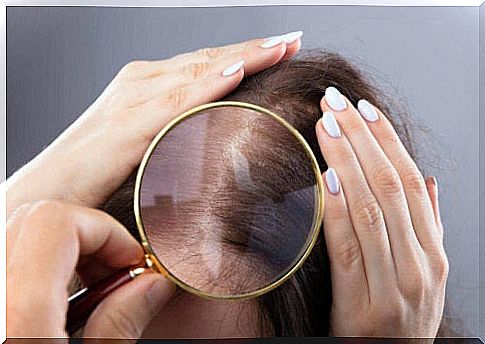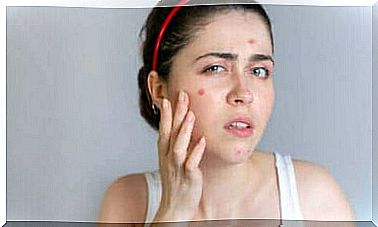The Connection Between Gray Hair And Stress

There is a clear link between gray hair and stress. It may not always arise from one day to the next, as the popular belief, but there is a scientific explanation for it.
Have you ever heard of how some political leaders compare their hair color before and after an election period? Most of them experience more gray hair after.
Science discovered that stress can break down the stem cells that produce hair pigment. This is because they stop dyeing the hair follicle when they are no longer there.
Researchers also found a link between the genes that give hair color and those that mediate the body’s immune response. This explains why some people become gray-haired when undergoing a serious infection process.
Genetics is also related to the skin condition known as vitiligo, where unpigmented spots appear all over the body.
Let’s take a closer look at it.
The link between gray hair and stress
Some researchers consider gray hair to be the natural state of hair. This is because it has no pigment and it becomes clearer as we get older. Under from this perspective , it is a semantic mistake to think that we become gray-haired after being stressed. In fact, we are returning to normal.
Hair color begins in cells known as melanocytes. These produce the pigment melanin, which colors skin and hair. Lighter or darker colors are due to different types of this substance, which is eumelanin.
Melanocytes lose their ability to produce melanin as we age. The less melanin, the lighter the hair color, and we perceive it as gray hair. This is of course more visible in people with darker hair.
So we can not ignore the effect of aging in addition to the possibility of stress as a cause of gray hair. In this process, there are no reservations about it, other than coloring the hair.

Do you ever wonder: Insomnia due to stress: What can you do?
Stressed or infected?
As we mentioned at the beginning, a scientific study found a link between immune response genes and those that regulate skin and hair color. This means that a major infection can speed up the process of getting gray hair.
Not surprisingly, infections that affect the body violently are stressful. The body must create adaptation mechanisms that allow it to survive and not succumb to the situation. It will overcome the stress if it adapts properly.
The study cited above suggested a compound via the MITF protein. This protein is affected by the human immune system when it attacks a significant infection. The protein ceases to regulate the process of melanin formation in melanocytes when it is affected and the cells suspend their function.
There is no color in the absence of melanin and therefore hair turns gray. This is not an immediate reaction, but there may be a feeling that it goes faster for dark hair, where gray hair is more visible.

Also check: If you wash your hair too much, then it will fall out?
Sudden gray hair or Marie Antoinette syndrome
Marie Antoinette is a popular name when it comes to stories of getting gray haired under stress. According to one of them, the hair of the French queen turned gray overnight when she found out she wanted to be guillotined.
This gave rise to the name Marie Antoinette syndrome for clinical cases of sudden gray hair. Technically, the scientific name of the disorder is Canities Subita .
The truth is that the hair as such does not turn gray in this condition. In fact, the main symptom is sudden hair loss due to stress. The underlying problem is the stressful situation, but the consequence varies.
What we do know is that there is an underlying autoimmune disease. Stress only accelerates the autoimmune process by loosening the hair follicles and leading to severe hair loss. Of course, gray hair becomes more visible after such a large loss, so it looks like the hair has suddenly turned gray.
However, this is not a common disorder. In fact, only 0.2% of the general population has experienced Marie Antoinette’s syndrome. Most people get their hair back after the stressful situation is no longer there, without the need for further treatment. Twenty percent of these patients, however, end up experiencing generalized hair loss or total alopecia.
Is there a link between gray hair and stress?
The answer to the question of whether we get gray haired when we are stressed is: Yes, we do. Internal mechanisms can be triggered by stressful situations, and our melanocytes lose the ability to produce melanin.
However, there is no such thing as hair suddenly turning gray or happening overnight. This syndrome, known as Marie Antoinette syndrome, is actually stress alopecia and has nothing to do with getting gray hair.
Finally, consult a dermatologist if you think your gray hair has changed too suddenly. A professional should be able to advise you on your symptoms.









